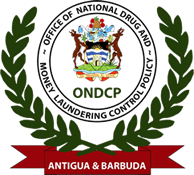At the recently concluded, Financial Crimes and Money Laundering conference held at Sandals Resort, the Director of the Office of National Drug and Money Laundering Control Policy, Lt. Col. Edward Croft in his opening remarks indicated that, Financial Institutions should have a good balance between competence, efficiency and user friendliness, bearing in mind that implementation of the requirements of the AML/CFT architecture should not be averse to the conduct of business.
Lucrative economic growth needs the commitment and cooperation of financial institutions, the business community and the potential investor. He further mentioned that International Trade a potentially lucrative endeavour could not be carried out without the facilitation of financial institutions. Caution and proper and adequate due diligence should be the watchwords in this.
For example, the Citizenship by Investment Programme is now contributing a significant amount to the Gross Domestic Product of this country. Due diligence is required of every entity involved. It is not for a Bank or an Agent, for example, to rest content that the CIP unit has done its own due diligence. Remember, responsibility for Customer Due Diligence (CDD) cannot be transferred.
Attention was also directed to statements at the recent CFATF Plenary by the President of the FATF, Roger Wilkins, “that proper AML/CFT, including Customer Due Diligence, should not be trade averse”.
Financial Institutions should therefore seek to enable this process that it may be transferred from a business burden to a business benefit. The Director encouraged financial institutions not to set up unbalanced or poorly designed AML/CFT systems that overburden customers, drives them away, then turn around and say that it is the ONDCP that requires it. That is not the case.
Director Croft provided 2 simple examples that amplified the point; “the law requires that customers should produce one valid government issued ID when conducting transactions but many institutions, based on the risk, ask customers to produce 2; the law requires that customers who deposit EC $ 25,000.00 or more must provide adequate information or data to support the customers source of funds but many institutions have established their own threshold of $ 10,000.00 which is ok based on the risk assigned, but do not tell the customers, or intimate to them that it is because of the ONDCP. The regulations are quite clear. Let us instead carefully identify and then balance the risk and provide effective systems that will promote positive economic growth. It is impossible to learn everything about a potential client but it is important to learn enough such that you lower your risk to an acceptable level and make sound informed business decisions.
In addition the Director informed the audience that Antigua and Barbuda exited the CFATF Follow-Up process. He stated, “It is worth noting that the CFATF at its recent Plenary in Trinidad expressed satisfaction with the progress that Antigua and Barbuda has made in addressing the weaknesses in its AML/CFT framework and as a result, I am pleased to report that Antigua and Barbuda has now exited the follow-up process linked to its last CFATF evaluation. This is a very big deal, and we all, both government and the private sector should be proud of this accomplishment.”

